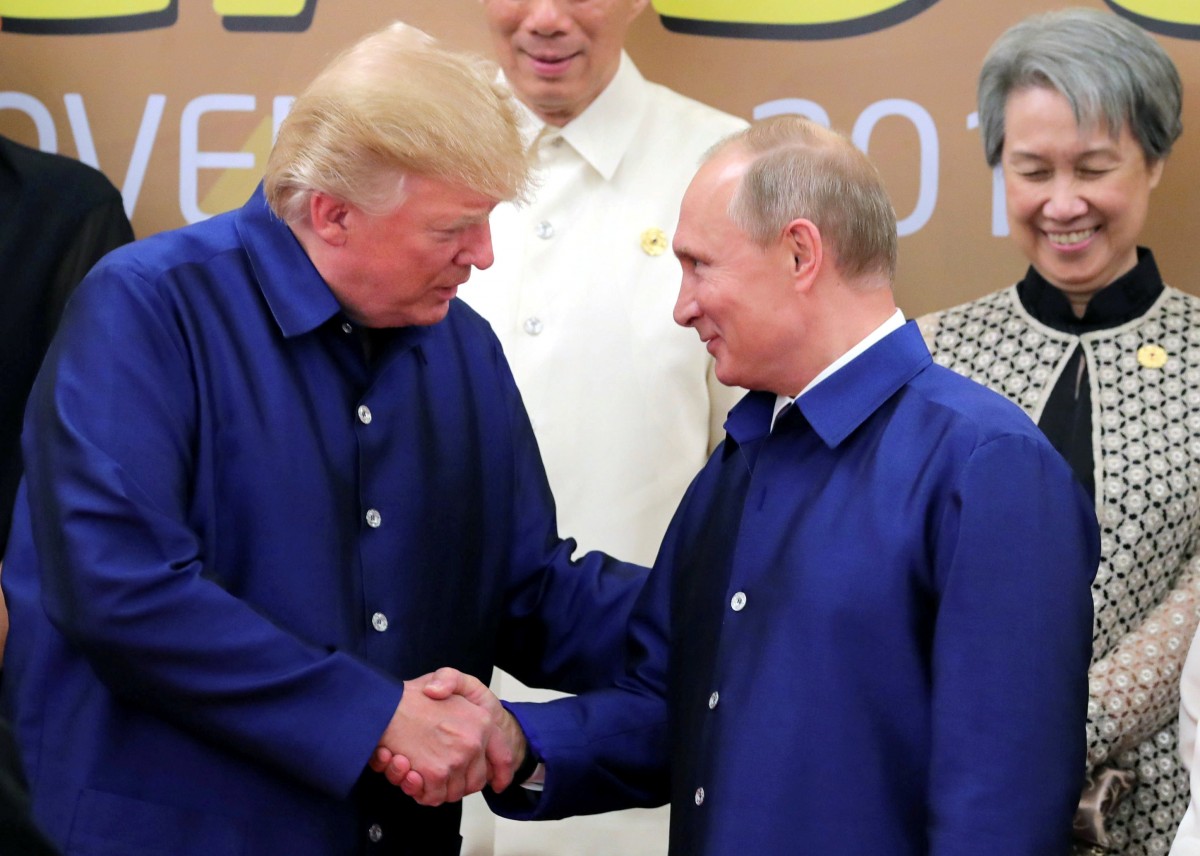
Almost from the moment he took office, President Trump seized on a theory that troubled his senior aides: Ukraine, he told them on many occasions, had tried to stop him from winning the White House.
After meeting privately in July 2017 with Russian President Vladimir Putin at the Group of 20 summit in Hamburg, Trump grew more insistent that Ukraine worked to defeat him, according to multiple former officials familiar with his assertions, The Washington Post reported.
The president's intense resistance to the assessment of U.S. intelligence agencies that Russia systematically interfered in the 2016 campaign – and the blame he cast instead on a rival country – led many of his advisers to think that Putin himself helped spur the idea of Ukraine's culpability, said the officials, who spoke on the condition of anonymity to describe internal discussions.
Read alsoReuters: Divided U.S. House impeaches Donald Trump in historic vote
One former senior White House official said Trump even stated so explicitly at one point, saying he knew Ukraine was the real culprit because "Putin told me."
Two other former officials said the senior White House official described Trump's comment to them.
The Ukraine theory that has consumed Trump's attention has now been taken up by Republicans in Congress who are defending the president against impeachment. Top GOP lawmakers have demanded investigations of Ukrainian interference for which senior U.S. officials, including the director of the FBI, say there is no evidence.
Allegations about Ukraine's role in the 2016 race have been promoted by an array of figures, including right-wing journalists whose work the president avidly consumes, as well as Rudolph W. Giuliani, his personal lawyer. But U.S. intelligence officials told lawmakers and their staff members this past fall that Russian security services played a major role in spreading false claims of Ukrainian complicity, said people familiar with the assessments.
The concern among senior White House officials that Putin helped fuel Trump's theories about Ukraine underscores long-standing fears inside the administration about the Russian president's ability to influence Trump's views.
The White House did not respond to requests for comment.
Read alsoFBI Director Wray: Ukraine did not interfere with 2016 U.S. election
The Russian Embassy in Washington declined to address whether Putin told Trump that Ukraine interfered in the 2016 campaign, saying only that information about the two leaders' conversations is available on the Kremlin's website.
On July 7, 2017, Trump had his first in-person encounter with Putin, at the G-20 meeting in Hamburg. Their highly anticipated formal conversation lasted more than two hours. But later that day, they met informally for an additional hour, at a dinner for heads of state and their spouses.
At the time, U.S. and Russian officials didn't disclose the conversation. During the meal, Trump left his chair and sat next to Putin. Trump went alone, and Putin was assisted by his interpreter.
On July 7, 2017, Trump had his first in-person encounter with Putin, at the G-20 meeting in Hamburg. Their highly anticipated formal conversation lasted more than two hours. But later that day, they met informally for an additional hour, at a dinner for heads of state and their spouses.
At the time, U.S. and Russian officials didn't disclose the conversation. During the meal, Trump left his chair and sat next to Putin. Trump went alone, and Putin was assisted by his interpreter.
For some White House officials struggling to understand Trump's obsession with Ukraine, the Hamburg meetings were a turning point.
Read alsoPompeo suggests debunked Ukraine election meddling theory should be probed – Reuters
Three former senior administration officials said Trump repeatedly insisted after the G-20 summit that he believed Putin's assurances that Russia had not interfered in the 2016 campaign. The officials said Kelly, national security adviser H.R. McMaster and Secretary of State Rex Tillerson all tried to caution Trump not to rely on Putin's word, and to focus on evidence to the contrary that U.S. intelligence agencies had collected.
Over the next several months, Trump privately told aides on several occasions that he believed Ukraine had interfered and tried to help Clinton win the White House, former officials said.
"The strong belief in the White House was that Putin told him," one former official said.
There was no evidence that Putin pushed the Ukraine theory with Trump in their official phone calls and meetings, which were witnessed by interpreters and aides, several former administration officials said.
However, White House aides were not part of Trump's private conversation with Putin in Hamburg, or a later meeting he had in Helsinki for two hours with the Russian president, when they were accompanied by only their interpreters.
Trump also took steps to conceal the details of his formal meeting with Putin in Hamburg, taking the notes away from his interpreter and instructing her not to discuss what had transpired with other administration officials.

